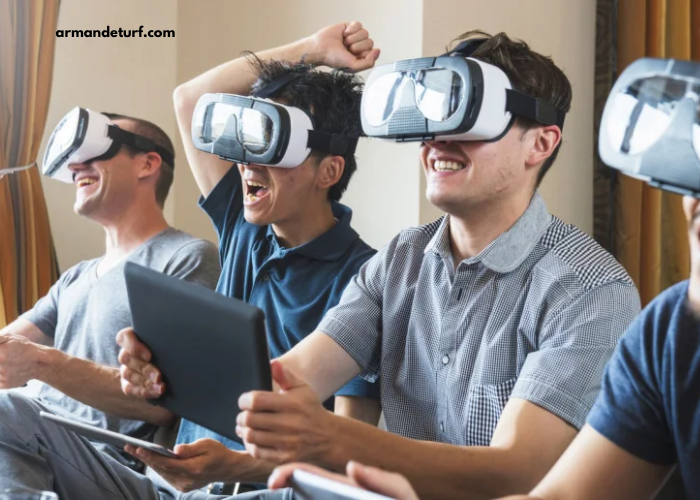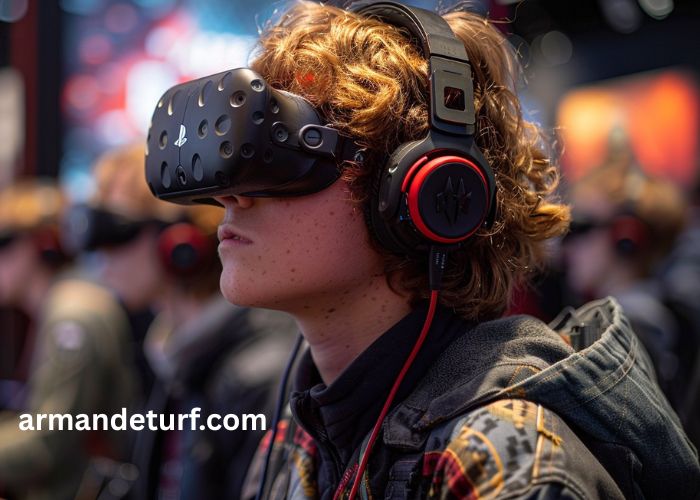Step into Virtual Entertainment Experiences
The world of entertainment is undergoing a revolutionary transformation. As technology continues to evolve, so does the way we experience media, games, concerts, and social interactions. One of the most compelling developments in recent years is the rise of Virtual Entertainment Experiences. These immersive digital environments redefine the boundaries of reality, offering unprecedented levels of interaction, personalization, and escapism.
In this article, we will delve deep into what virtual entertainment experiences are, their impact on different industries, and what the future holds for this cutting-edge trend. Whether you’re a tech enthusiast, a media professional, or simply curious about the future of digital experiences, this comprehensive guide is for you.
What Are Virtual Entertainment Experiences?
Virtual entertainment experiences refer to digitally simulated environments where users can interact with content in an immersive and engaging manner. Powered by technologies such as Virtual Reality (VR), Augmented Reality (AR), Mixed Reality (MR), and Extended Reality (XR), these experiences replicate or enhance real-world settings to create interactive entertainment scenarios.
Key Technologies Behind Virtual Entertainment
-
Virtual Reality (VR): Fully immersive digital environments experienced through VR headsets like Oculus, HTC Vive, or PlayStation VR.
-
Augmented Reality (AR): Overlaying digital content onto the real world using smartphones, tablets, or AR glasses.
-
Mixed Reality (MR): A blend of real and virtual environments, allowing physical and digital objects to coexist and interact in real-time.
-
Extended Reality (XR): An umbrella term encompassing VR, AR, and MR technologies.
The Rise of Virtual Reality in Entertainment
Gaming in a Virtual World
Gaming was among the first industries to embrace VR, and for good reason. Virtual reality gaming offers a more realistic and interactive experience than traditional platforms. Players can physically move, touch, and interact with elements in the game world, creating an entirely new level of immersion.
Popular VR games like Half-Life: Alyx, Beat Saber, and The Walking Dead: Saints & Sinners have demonstrated the potential of VR to captivate audiences.
Virtual Concerts and Live Events
With the onset of the pandemic, virtual concerts emerged as a viable alternative to in-person gatherings. Artists such as Travis Scott and Ariana Grande have hosted massive VR concerts in platforms like Fortnite and Roblox, attracting millions of viewers globally.
These concerts offer interactive features, such as flying through space with the artist or participating in digital dance-offs—experiences impossible in traditional venues.
Immersive Storytelling in Films and Series
Virtual entertainment is also revolutionizing the way we consume films and TV series. Instead of passively watching a screen, users can step into the narrative and explore the story from within. Companies like Netflix, Meta, and Sony are investing heavily in immersive storytelling projects.
Virtual Theme Parks and Escape Rooms
Digital Amusement Parks
Virtual theme parks provide thrilling rides and attractions without leaving your home. They replicate the sights, sounds, and sensations of real-world amusement parks using VR headsets and motion simulation technologies. Disney and Universal Studios have already begun integrating virtual elements into their theme park experiences.
Escape Rooms in the Metaverse
Escape rooms have gone virtual too. With platforms like VRChat and AltspaceVR, users can join others to solve puzzles and complete missions in highly detailed virtual settings. This digital transformation enables global collaboration and social interaction in a safe, controlled environment.
The Impact of Virtual Entertainment on Various Industries
Film & TV Production
Virtual production techniques such as LED volume stages and real-time rendering are replacing traditional green screens. These methods save time and cost, while offering directors more creative freedom to visualize and adjust scenes in real-time.
Tourism and Travel
Want to explore the Eiffel Tower or dive into the Great Barrier Reef? Virtual travel experiences are allowing people to tour famous landmarks and exotic locations without physical travel. This innovation is especially beneficial for elderly individuals or those with mobility issues.
Education and Training
From virtual classrooms to immersive history lessons, VR is enhancing learning by making it experiential and engaging. In the entertainment industry, professionals are being trained using virtual simulations, helping them gain practical experience safely.
Social and Psychological Benefits
Fostering Social Connections
Virtual entertainment platforms often include interactive social features. Avatars, chat rooms, and multiplayer functions enable people to connect and share experiences with others around the world.
Mental Wellness and Escapism
Virtual environments provide a safe space for relaxation, mindfulness, and exploration. Meditation apps in VR, nature walks, or simulated calming environments help users de-stress and improve their mental health.
Challenges and Ethical Considerations
While virtual entertainment offers exciting possibilities, it also comes with challenges that must be addressed:
Digital Addiction
Prolonged exposure to virtual worlds may lead to screen addiction and social withdrawal. It’s important to promote responsible usage and encourage breaks.
Privacy Concerns
Data collection in virtual environments raises significant privacy and security issues. Developers must ensure that user data is encrypted and used ethically.
Accessibility Barriers
High-quality VR headsets and systems can be expensive, making them inaccessible to low-income users. Efforts must be made to make these experiences more affordable and inclusive.
The Future of Virtual Entertainment Experiences
Integration with AI and Machine Learning
Future virtual experiences will be powered by intelligent AI algorithms that adapt to user behavior. Personalized content, dynamic environments, and real-time storytelling will become the norm.
The Rise of the Metaverse
The metaverse—a persistent, shared digital universe—promises to merge work, play, and social interaction into a single immersive experience. Platforms like Meta’s Horizon Worlds and Decentraland are already laying the groundwork.
Haptic Feedback and Full-Body Immersion
Technologies like haptic gloves, suits, and treadmills are being developed to make virtual experiences feel even more real. These devices allow users to feel textures, resistance, and movements within the virtual world.
How Businesses Can Leverage Virtual Entertainment
Marketing and Brand Engagement
Brands can create virtual showrooms, interactive ads, and gamified campaigns to engage audiences in memorable ways. Virtual product launches and digital fashion shows are already gaining traction.
Customer Experience and Support
Companies are using VR to offer immersive customer service experiences, such as virtual try-ons, product demos, and virtual assistants that guide users through digital environments.
Remote Work and Collaboration
Virtual meeting spaces are becoming popular for businesses that want to enhance remote collaboration. These spaces replicate the feel of a physical office while offering digital flexibility.
Getting Started with Virtual Entertainment
If you’re new to the virtual entertainment world, here’s how to begin:
Choose the Right Hardware
Start with an entry-level VR headset like the Meta Quest 2 or PlayStation VR2. These offer a good balance between performance and affordability.
Explore Platforms and Apps
Some popular VR platforms include:
-
SteamVR: Wide range of VR games and apps
-
Oculus Store: Meta’s dedicated VR content hub
-
AltspaceVR and VRChat: Social VR environments
-
YouTube VR: For immersive 360° video experiences
Join the Community
Get involved in online forums, Discord groups, or Reddit communities like r/virtualreality. You’ll find helpful tips, events, and people to explore with.
Final Thoughts
The world is shifting from passive consumption to active, immersive engagement, and virtual entertainment experiences are at the forefront of this change. As VR, AR, and XR technologies continue to evolve, we are stepping into a future where digital and physical realities coexist harmoniously.
From gaming and storytelling to education, wellness, and business—virtual entertainment experiences are transforming how we connect, learn, and have fun. Whether you’re a creator, consumer, or entrepreneur, now is the perfect time to step into virtual entertainment and explore the possibilities of a world without limits.
FAQs
Q1: Are virtual entertainment experiences safe for kids?
Yes, but parental supervision is advised. Many VR systems offer kid-friendly content and safety features.
Q2: What are some popular VR devices available today?
Top picks include Meta Quest 3, PlayStation VR2, HTC Vive Pro, and Valve Index.
Q3: Can I experience virtual entertainment without a headset?
Yes, AR apps and 360° videos on smartphones or desktops provide entry-level access.
Q4: Will virtual entertainment replace real-world experiences?
Not replace, but complement them. It adds convenience, accessibility, and creativity to traditional formats.



